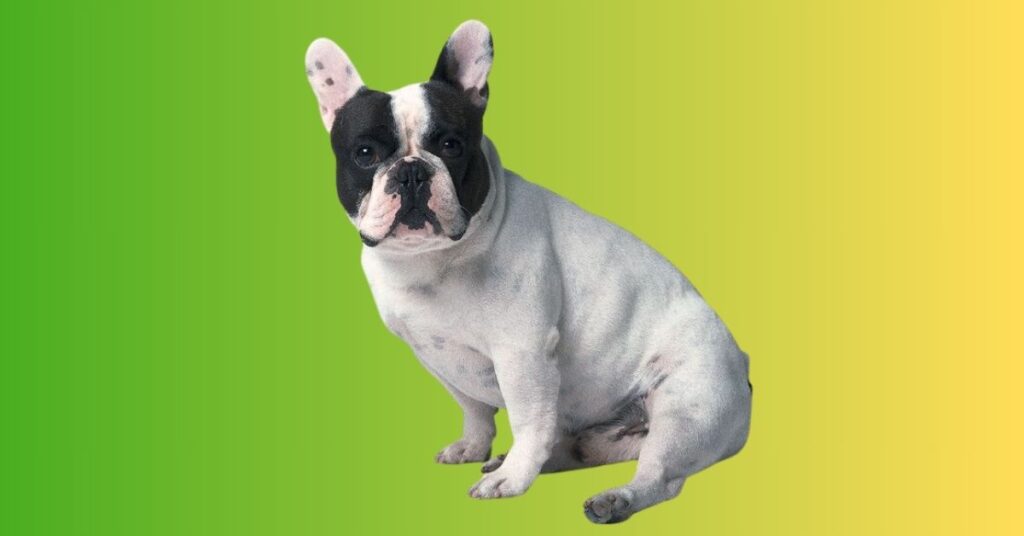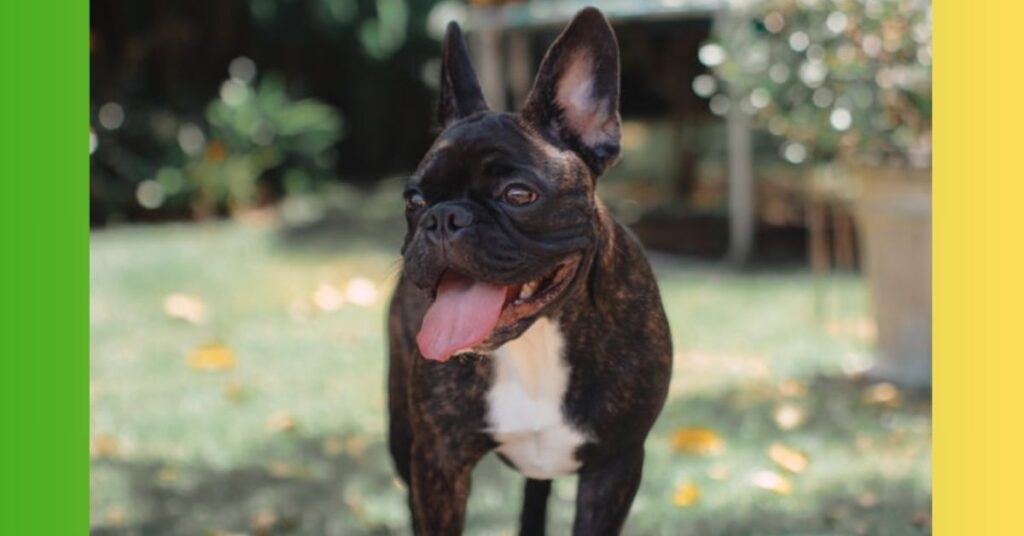French Bulldog Breathing Problems: Causes & Best Solutions
French Bulldogs are brachycephalic dogs, meaning they have short muzzles and flat faces. This unique facial structure can lead to various breathing problems, a condition known as Brachycephalic Obstructive Airway Syndrome (BOAS). French Bulldog breathing problems common symptoms include noisy breathing, snoring, difficulty exercising, and in severe cases, respiratory distress. Because of their anatomy, these dogs may struggle to get enough air, especially in hot or humid conditions, which can exacerbate their breathing issues.
To help manage these problems, it’s essential for French Bulldog owners to be vigilant about their pet’s health. Regular veterinary check-ups are crucial, as veterinarians can assess the severity of any breathing difficulties and recommend appropriate interventions. Maintaining a healthy weight, avoiding strenuous exercise in extreme temperatures, and providing a calm environment can also help improve their quality of life. In some cases, surgical options may be available to correct structural abnormalities and enhance airflow. Overall, understanding the unique needs of French Bulldogs is vital for ensuring their well-being.
Why French Bulldogs Are Prone to Breathing Problems
French Bulldogs are undeniably adorable, but their charming, squished faces often come at a cost; breathing problems are prevalent within this breed. The root of these issues lies in their brachycephalic structure; the short snouts and flat skulls lead to a variety of respiratory complications.
Environmental factors play a significant role in exacerbating French Bulldog breathing problems. Hot weather can turn an ordinary day into a struggle for these sensitive pups, making them prone to heat exhaustion due to their inefficient cooling systems.
Anatomy of a French Bulldog’s Respiratory System
The respiratory system of a French Bulldog is a fascinating yet delicate masterpiece, shaped by its brachycephalic anatomy. With a uniquely compressed skull and shorter airways, these dogs experience breathing problems that can be both intriguing and alarming for pet owners.

The snub nosed face not only contributes to their adorable appearance but also limits airflow, leading to conditions such as brachycephalic obstructive airway syndrome (BOAS). This condition results in increased resistance during inhalation, making it crucial for owners to understand the signs of distress.
Normal Vs. Abnormal Breathing Patterns In French Bulldogs
French Bulldogs are heavy breathers. Their breathing sound can be pronounced loud, and some of them snore. They usually breathe faster, but it’s a normal characteristic of this breed. As a Frenchie owner, it is important to be on the lookout for how your dog is breathing.
Normally your dog should take even and regular breaths.
Breathing should be deep with abdominal movement as the dog inhales and exhales. When at rest, it should be breathing easily without panting or gasping for breath.If your dog is breathing rapidly, accompanied by coughing or wheezing, you should be concerned. The following signs indicate abnormal breathing.
- Shallow breaths
- French Bulldog Snoring
- Gagging
- Open-mouth breathing
Common French Bulldog Breathing Problems
French Bulldogs are beloved for their charming personalities and compact stature, but they often grapple with a range of breathing problems due to their brachycephalic (short-nosed) structure.
This anatomical feature can lead to conditions such as brachycephalic obstructive airway syndrome (BOAS), which is characterized by narrowed nostrils, an elongated soft palate, and excessive tissue in the throat.
Owners might notice signs like snoring or labored breathing during exercise or even at rest, revealing just how vulnerable these dogs can be when it comes to respiratory health.
Brachycephalic Airway Syndrome (BAS)
French Bulldogs, with their distinctively cute flat faces, are unfortunately prone to a range of breathing issues primarily due to their brachycephalic structure. One of the most concerning conditions is Brachycephalic Airway Syndrome (BAS), which encompasses various anatomical abnormalities like narrowed nostrils and elongated soft palates.

These factors can lead to obstructed airways, causing the beloved pup to struggle during exercise or even while resting. It’s essential for owners to recognize the signs early; symptoms such as snoring, excessive panting, or difficulty handling heat can all signal BAS anxiety.
Stenotic Nares
One of the most prevalent issues affecting French Bulldogs is stenotic nares, a condition characterized by narrowed nostrils that restrict airflow.
This anatomical quirk can significantly hinder a Frenchie’s ability to breathe comfortably, leading to noisy breathing and even increased snoring during sleep.
Pet owners often overlook this issue at first, attributing it to their breed’s quirky charm rather than recognizing it as a potential health concern.
Soft Palate Elongation
French Bulldogs are adored for their charming personalities and compact physiques, yet they often face unique breathing challenges. One of the most prevalent issues is **soft palate elongation**, a condition where the soft palate extends too far back into the throat, partially obstructing airflow.
This anatomical quirk is typical in brachycephalic breeds, leading to noisy breathing and difficulty during exercise or playtime. Owners may notice their pets snorting or wheezing, which can be alarming but indicates underlying structural issues that need attending.
Tracheal Hypoplasia
French Bulldogs, with their adorable bat ears and compact frames, often face unique respiratory challenges due to their brachycephalic (short-nosed) structure. One common issue among these lovable companions is Tracheal Hypoplasia.
This condition manifests as an underdeveloped trachea, leading to constricted airflow and making even simple activities like walking or playing a bit of a struggle. Pet owners may notice symptoms such as chronic coughing, wheezing, or labored breathing, but understanding the nuances of this condition can help in managing it better.
Exercise Intolerance And Heat Stroke
Exercise intolerance in French Bulldogs can manifest as an alarming sign of underlying health issues, when paired with the risk of heat stroke. These brachycephalic dogs are prone to breathing problems due to their short snouts and compressed airways, making even moderate exercise potentially dangerous on hot days.

When a French Bulldog exhibits signs of fatigue or struggles to catch its breath during physical activity, it may not just indicate laziness but rather an urgent need for attention, emphasizing the importance of monitoring environmental conditions alongside their energy levels.
Solutions For French Bulldog Breathing Problems
One of the most pressing concerns for French Bulldog owners is their breed-specific susceptibility to breathing problems, primarily due to their brachycephalic (short-nosed) structure. Addressing these challenges requires a multifaceted approach that encompasses lifestyle adjustments and veterinary care.
For instance, ensuring your Frenchie maintains a healthy weight can significantly lessen respiratory strain. Obesity can exacerbate breathing difficulties, making regular exercise in cooler weather essential while avoiding strenuous activities.
Medical Treatments For French Bulldog Breathing Problems
French Bulldogs are beloved for their charming personalities and distinctive looks, but their brachycephalic (short-nosed) structure often leads to significant breathing problems.

Standard medical treatments include anti-inflammatory medications, steroids, and in some cases, antibiotics to manage infections or inflammation in the airways.
A more holistic approach can yield impressive results as well; combining traditional medicine with lifestyle changes like weight management and exercise can lessen respiratory strain and improve quality of life.
Surgery
For French Bulldogs, struggling with breathing problems can be a distressing experience, not just for the dogs but also for their owners. One effective solution lies in surgical intervention. Procedures like soft palate resection or stenotic nares correction can significantly improve airflow and alleviate breathing difficulties.
Medications
For French Bulldogs grappling with breathing problems, the approach to treatment often begins with a thorough veterinary assessment. Medications play a pivotal role in managing conditions like brachycephalic obstructive airway syndrome (BOAS), which is prevalent among these beloved canines. Corticosteroids, for instance, can help reduce inflammation in the airways, providing immediate relief and enabling better airflow.
Oxygen Therapy
French Bulldogs are notorious for their brachycephalic structure, which makes them susceptible to various breathing problems. One innovative treatment gaining traction is Oxygen Therapy, a non-invasive solution that provides relief by supplementing the oxygen levels in a dog’s bloodstream.
This therapy not only alleviates discomfort during episodes of respiratory distress but also promotes overall health by enhancing the efficiency of oxygen delivery to vital organs. Owners have noted remarkable improvements in their pets’ energy.
Home Remedies And Prevention Tips For French Bulldog Breathing Problems
Creating a healthy indoor environment is key to preventing respiratory issues in your dog. Regularly dusting and vacuuming can dramatically reduce allergens and pollutants that exacerbate respiratory problems. Consider investing in an air purifier equipped with HEPA filters, which effectively capture pet dander, pollen, and other airborne irritants.
Be mindful of the types of cleaning products you use; opting for natural or hypoallergenic alternatives can minimize exposure to harsh chemicals that could harm your dog’s sensitive respiratory system.
Weight Management
Keeping your dog at a healthy weight is crucial for their respiratory well-being. Obesity can lead to increased pressure on a dog’s lungs and airways, making it harder for them to breathe comfortably. To aid in weight management, consider integrating more interactive play sessions into your daily routine.
Activities like agility training or fetch not only burn calories but also keep their spirits high. Monitoring portion sizes and opting for low-calorie treats can tackle excessive weight gain while ensuring they receive adequate nutrition.
Exercise And Playtime Management
Effective exercise and playtime management are crucial in reducing the risk of respiratory issues in your dog. Tailoring their physical activities to suit their breed, age, and health status is essential. Brachycephalic breeds like Bulldogs or Pugs can struggle with heavy exertion due to their short snouts.
Instead of energy-draining races, consider gentle walks during cooler parts of the day. This not only helps prevent respiratory distress but also keeps them engaged.
Control Temperature And Humidity
Controlling temperature and humidity in your home is a game-changer for your dog’s respiratory health. Dogs are particularly sensitive to extreme temperatures and high humidity levels, which can exacerbate existing breathing issues or lead to new ones.
Using a humidifier in drier months helps maintain optimal moisture levels in the air, thus easing their nasal passages and reducing the risk of irritation. Conversely, ensuring that indoor spaces remain cool and well-ventilated can prevent overheating and subsequent respiratory distress.
Nasal Drops
One effective strategy for preventing respiratory issues in dogs is to incorporate nasal drops specifically formulated for canine use. These can help clear mucus and promote easier breathing, especially during allergy season or cold weather.
When To See A Vet For French Bulldog Breathing Problems
When it comes to French Bulldog breathing problems, early intervention is key. These adorable companions are notorious for their brachycephalic anatomy, which can lead to a range of respiratory issues.

If you notice your french bulldog breathing issues to catch their breath after a short walk or exhibiting unusual snoring patterns while resting, it might be time for a vet visit.
Such signs could indicate more than just the typical flat-faced struggles; they may signal conditions like brachycephalic obstructive airway syndrome (BOAS), which necessitates professional evaluation.
And Also Read About Frenchton Dog Breed- Best Guiding
Conclusion
Understanding the causes of French Bulldogs breathing problems is crucial for any owner concerned about their pet’s health. Implementing preventive measures, such as maintaining a healthy weight and ensuring proper temperature control, can help mitigate these issues. Regular veterinary check-ups are essential for monitoring respiratory health and addressing any concerns promptly.
FAQs
What Helps French Bulldogs Breathe Better?
To help them breathe better, it’s essential to maintain a healthy weight, as excess body fat can exacerbate respiratory issues. Regular exercise is important, but it should be balanced and not overly strenuous; short walks and play sessions can keep them active without overexerting their lungs.
What Is a French Bulldog Breathing Operation?
A French bulldog breathing operation typically refers to surgical procedures aimed at alleviating respiratory issues commonly faced by this breed due to their brachycephalic (short-nosed) structure.
Is It Hard For Bulldogs to Breathe?
frenchie breathing hard
Yes, bulldogs can have difficulty breathing due to their unique physical characteristics. Their short snouts and flat faces, a condition known as brachycephaly, can lead to a range of respiratory issues.
Why Does My Frenchie Stop Breathing?
If your French Bulldog is stopping breathing or the French bulldog can’t breathe, experiencing episodes of labored breathing, it could be due to several factors related to their brachycephalic (short-nosed) anatomy.
Why Is My Frenchie Breathing So Hard?
If your French Bulldog is breathing hard, it could be due to several factors. Frenchies are brachycephalic dogs, which means they have short snouts and flat faces. This anatomical structure can lead to respiratory issues, especially in hot weather or during physical exertion.







